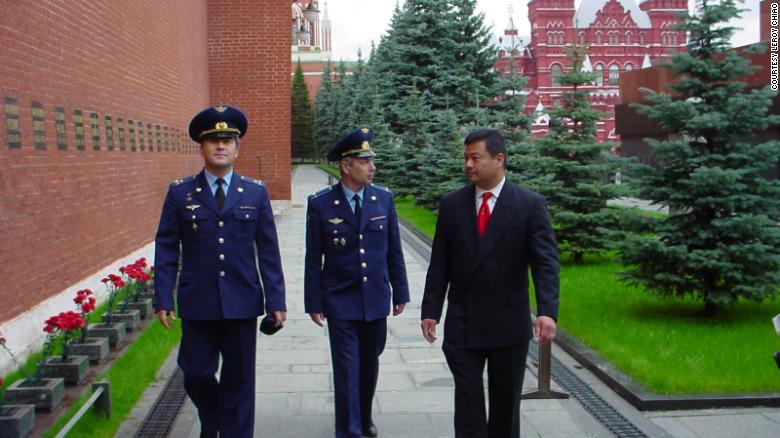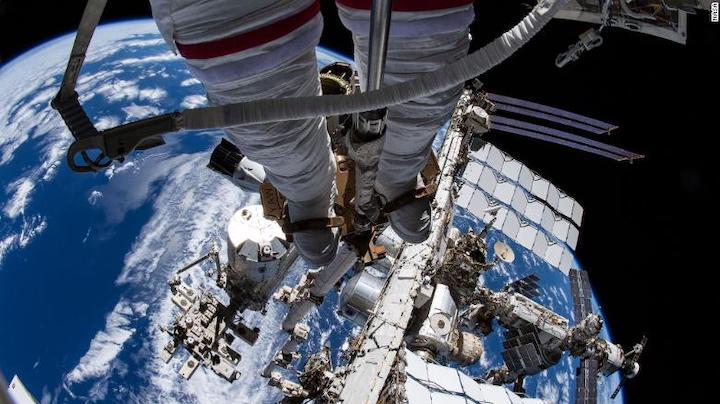In the early 2000s, a few years after the Kosovo war, I started training for my ISS mission in Star City, outside of Moscow. Not long after I started training in Russia there were conflicts in and around the Balkans and I remember times when we would hear heavy Russian transport aircraft taking off all night from the air base next to us, bringing troops and materiel to the conflict zones.
We Americans discussed these issues with our Russian friends in the training program and I learned one of the wonderful things about living in other worlds is you develop perspective. You don't necessarily agree, but you can appreciate the viewpoints of the other side.
I trained in Russia every other month over the course of almost four years, before launching to the ISS aboard the Russian Soyuz TMA-5 mission. Through all of the disagreements between countries that occurred while I was actively a part of ISS, from 2001 to 2005, there were no problems at all for program operations.
But in 2014, when Russia annexed Crimea from Ukraine, there was a hint this might not always be the case.
In the aftermath of the annexation, condemnation from Western powers, including from the United States, prompted Dmitry Rogozin, then Russian Deputy Prime Minister, to
tweet perhaps American astronauts could find their way to the ISS via trampoline -- instead of aboard Russian spacecraft.
We were totally dependent on Russia for such transport back then, and it marked the first time a political leader of a partner country made a threat against another, in regard to cooperation in the ISS program. Rogozin would go on to be named director of the Russian space agency
Roscosmos in 2018, a position he still holds today. These days, the US is no longer dependent on the Russian Soyuz for sending people and material to the ISS, after SpaceX's Dragon spacecraft broke the monopoly.
In 2022 there are renewed tensions between Russian President Vladimir Putin and the West, amid the threat of an invasion of Ukraine. Since Rogozin is head of Roscosmos and a close ally of Putin, it certainly seems possible the ISS cooperation may be used as leverage to help pressure the US to moderate its position. That would be a problem.
The fact is, both major ISS partners, the US and Russia, are required to keep it operating. The station's ability to operate depends on cooperation between both countries' control centers, as well as both nations' teams of specialists and crew members. If one space agency were to issue orders to the working level troops to limit or stop cooperating, the ISS would be in jeopardy.

For example, orientation of the ISS is crucial for it to remain in orbit, and this requires close coordination between control centers and their assets. One side or the other can only operate for so long independently. It is something the top political leaders probably do not understand or appreciate. For technical reasons, noncooperation could literally lead to the physical loss of the station.
Indeed, one of the most important things to come out of America's human spaceflight program, was the international framework which made the ISS possible. The partners involved work very well together -- and set an example for other areas in international cooperation, according to a
2009 White House review, which I helped author.
From my experiences, I have the perspective to see the Russian concerns in the current Ukraine dispute, even though I firmly believe in the American position. Had the Soviet Union not fallen, how would the US feel about Canada and Mexico possibly positioning themselves to join the Warsaw Pact? Similarly, my Russian friends I'm sure, can see the American perspective: That Ukraine is a sovereign nation, with the right to make its own decisions on alliances and in other matters. This, despite the fact both Russia and Ukraine are descended from the
Kievan Rus, and so to them, the lines may be more gray than black and white.
The political leaders on all sides should engage each other with a good understanding of the perspectives of the others, to find a face-saving solution. Not only to keep ISS safely operating, but more importantly, for the sake of the people of the nations involved.
Quelle: CNN



